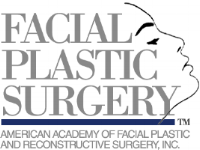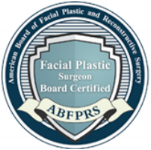Effective Food Allergy Testing Santa Monica
Food allergies can be a tricky diagnosis for many doctors. Since most food is consumed alongside other foods, narrowing down the actual cause of the allergy can be tough to do. When allergy testing Santa Monica is performed by our licensed practitioners, they’ll take a few different factors into consideration in order to find the actual trigger of your allergic reaction.These include:
A Physical Exam – This one is fairly obvious, as your doctor is going to want to assess your physical condition. This will help them identify any pre-existing medical conditions or problems that must be addressed.
Family History – Your genes can play a big role in your health. It’s not uncommon for members of the same family to have similar allergies.
Your Symptoms – The practitioner will need to assess the symptoms that you’re having due to your food allergy. They’ll want to identify how much food you’re eating, the types of food, and what specific symptoms you’re noticing to what degree.
Blood Test – Your allergy doctor Santa Monica may opt to perform a blood test that will allow them to measure your immune system’s response to specific foods that may be an allergen for you. With a blood test, they measure specifically immunoglobulin E, also commonly referred to as IgE. This type of test can be done at your doctor’s office and will have to be assessed by a professional allergy lab.
Skin Test – One of the most popular kinds of food allergy testing Santa Monica is a skin prick test, which can be used to determine your actual reaction to particular foods. The doctor will prick a small amount of the suspected food on your forearm or back. They’ll monitor you for symptoms to help identify their diagnosis of the allergen.
Elimination Dieting – Another tactic allergy doctors may use is controlling your diet. They will have you eliminate the suspected foods for up to two weeks. They’ll monitor your results and slowly add the food back into your diet. As symptoms arise, the doctor can better identify which foods are causing your issues. This type of testing is not recommended for those with a severe allergic reaction.
Oral Testing – This type of testing is performed at the doctor’s office. They’ll give you small amounts of suspected allergen foods. As they monitor you for symptoms, they’ll slowly increase your consumption amounts of that particular food. This will help the doctor to identify at what amounts your body will react to the allergen food. Understanding the various testing methods that can be used by medical professionals to help identify your food allergies can do wonders for calming your nerves through the testing process. When you understand what they’re going to be doing, it can help tremendously to keep you calm and work with them to effectively identify your allergy. Once your allergy is identified, your doctor will recommend a treatment plan. This is going to vary on whether or not you have an acute or severe reaction.
Acute Reaction – Certain foods can cause more acute reactions, such as hives. These can be simply treated with over the counter antihistamines, such as Benadryl. These medications can help reduce the symptoms of the allergic reaction until they subside.
Severe Reaction – This is when you can expect a trip to the emergency room. You’ll likely receive an injection of epinephrine. Many people with severe allergies will have an autoinjector, usually an EpiPen or Adrenaclick, in order to counteract the severe reaction in the event of an emergency. This autoinjector is pressed into the thigh to inject the epinephrine.
While these treatments are commonly used as a go-to option, there are some experimental treatments on the market today. Some are utilized to prevent allergic attacks while others work to completely relieve the symptoms associated with the attack. Some of these experimental treatments include the following:
Anti-IgE Therapy – This drug is in the experimental stage of treating allergic asthma and food reactions. It’s commonly referred to as Xolair or omalizumab medication. This medication basically interferes with the body’s ability to use the IgE.
Early Exposure – It’s been a common recommendation of pediatricians to avoid allergenic foods for children. This way, it reduces their likelihood of developing allergies. However, recent studies have revealed that those higher-risk children, meaning ones with egg allergies and atopic dermatitis, who regularly consumed allergenic foods were less likely to develop a food allergy.
Oral Immunotherapy – This is a type of treatment where a small dosage of the suspected allergic food is swallowed or placed under the tongue of the patient. As the size of the food is increased, the body adapts to its presence. Over time, this has been shown to reduce the symptoms of the food allergy.







